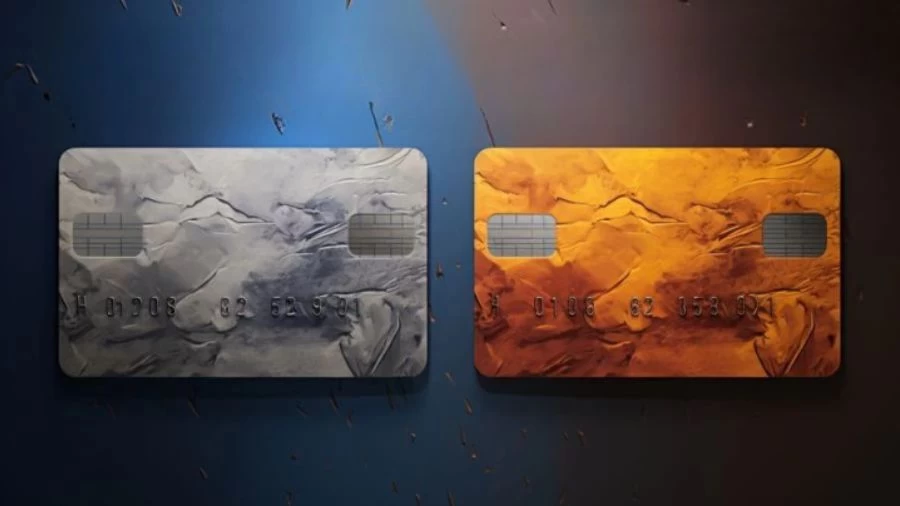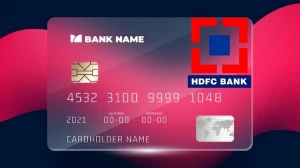
- Home »
- Credit Card »
- What is a Credit Card? How Does a Credit Card Work?
What is a Credit Card? How Does a Credit Card Work?
A credit card is a financial tool, typically a thin rectangular piece of plastic or metal, issued by banks or financial institutions, allowing users to make purchases with borrowed funds, repayable either in full by the billing date or over time, contributing to credit history and score.
by Kowsalya
Published Aug 03, 2023 | Updated Dec 11, 2023 | 📖 7 min read
What is a Credit Card?
A credit card is a financial tool issued by banks or financial institutions, typically in the form of a thin rectangular piece of plastic or metal. It enables cardholders to make purchases for goods and services from merchants that accept card payments, with the understanding that the borrowed funds, along with any applicable interest and agreed-upon charges, must be repaid either in full by the billing date or over time. In addition to a standard credit line, credit card issuers may provide a separate cash line of credit for cash advances.
Various types of credit cards exist, including rewards cards, secured cards, and store-branded cards, each offering distinct features and benefits. Building a positive credit history is facilitated by responsible card usage, contributing to credit score improvement and potential credit line expansions. Understanding terms such as annual percentage rates (APRs) and fees is crucial for informed credit card management.
How Does a Credit Card Work?
A credit card functions as a short-term loan, allowing users to make purchases or pay bills up to a predetermined credit limit. When a transaction is made, the cardholder's details are sent to the merchant's bank, which seeks authorization from the credit card network.
The card company then verifies the information, both approving or declining the transaction. At the end of the billing cycle, a statement is provided, detailing transactions, balances, and minimum payment due. Responsible use, timely payments, and understanding of terms such as APR contribute to building credit.
Different types of credit cards, including rewards and secured cards, offer various benefits, but users must be mindful of fees and interest rates. Comparing cards based on APR, fees, rewards, and other features is crucial for informed decision-making. Ultimately, responsible credit card use can offer convenience, rewards, and a tool for building credit history.
What is the Difference Between a Credit Card and a Debit Card?
A credit card and a debit card are both payment cards that are widely used for making purchases, but they function differently and have distinct features. The difference between a credit card and a debit card lies in how they access funds and the features they offer. Here's a detailed overview:
Credit Card
Access to Credit
A credit card allows you to borrow money from the card issuer up to a certain limit. You are expected to pay back the borrowed amount, usually on a monthly basis.
Line of Credit
Credit cards provide a line of credit, and the amount you can spend is determined by your credit limit. This limit is set by the card issuer based on your creditworthiness.
Interest
If you do not pay the full balance by the due date, the remaining balance incurs interest. Credit cards often have higher interest rates compared to other forms of credit.
Builds Credit History
Using a credit card responsibly and making timely payments can positively impact your credit history and credit score. This can be beneficial for future financial transactions.
Rewards and Perks
Many credit cards offer rewards such as cash back, travel points, or other benefits based on your spending. Some premium cards provide additional perks like travel insurance or access to airport lounges.
Fraud Protection
Credit cards generally offer better fraud protection. The maximum liability for unauthorized purchases is limited, and you are not held responsible for disputed charges during an investigation.
Fees
Credit cards may have annual fees, late payment fees, cash advance fees, and foreign transaction fees. However, some cards offer benefits that can outweigh these costs.
Debit Card
Access to Own Funds
A debit card allows you to make purchases by directly deducting money from your checking account. It does not involve borrowing; you spend what you already have.
No Credit Limit
Debit cards do not have a credit limit since you are using your own funds. However, there may be daily spending limits imposed by your bank.
No Interest
Debit cards do not accrue interest because you are not borrowing money. You only spend what is available in your account.
No Credit History Impact
Using a debit card does not impact your credit history or credit score. It is a transactional tool rather than a means to build credit.
Limited Rewards
While some debit cards offer rewards programs, they are generally less lucrative than those offered by credit cards. Rewards may include cash back on certain purchases or discounts.
Fraud Protection
Debit cards are becoming more secure, but the level of fraud protection is generally not as extensive as with credit cards. Liability for unauthorized transactions depends on how quickly you report them.
No Annual Fees
Debit cards typically do not have annual fees, but you may incur fees for overdrafts or using ATMs outside your bank's network.
Related >> How Long Does a Credit Card Payment Take to Process
What is an Annual Fee on a Credit Card?
An annual fee on a credit card is a cost charged by the card issuer for maintaining and using the card. It is typically a yearly charge, although some issuers may offer monthly installments. Annual fees can vary widely, ranging from $35 to $500 or more, with the average fee around $128 for cards with such charges. Not all credit cards have annual fees, and the decision to opt for a card with this fee depends on the individual's financial situation and spending habits.
Cards with annual fees often provide extra benefits, such as cash back, miles rewards, or welcome bonuses, and evaluating whether the fee is worth it involves considering the offered perks against the extra cost.
What is a Closing Date for a Credit Card?
The credit card closing date, also known as the statement closing date, is the final day of your billing cycle, during which your monthly transactions are calculated to determine the total balance due. This date is not necessarily aligned with the calendar month and is typically set based on when you initially opened the credit card account.
To find your credit card closing date, check your mailed statement, online account, or the PDF statement available online. The closing date is crucial as it influences your statement balance, credit utilization, and the calculation of rewards. Understanding this date is essential for managing your monthly cash flow, and credit score, and maximizing credit card benefits. If needed, many card issuers allow you to change the closing date to better align with your budget.
Related >> What is a Cash Advance on a Credit Card
What is the Purchase APR on a Credit Card?
The Purchase Annual Percentage Rate (APR) on a credit card is the interest rate charged by the card issuer on purchases when a balance is carried over from one month to the next. It is expressed as an annualized percentage and is applied monthly to any unpaid balances. The Purchase APR is a key factor to consider if you plan to carry a balance, impacting the interest accrued on your outstanding purchases.
Credit cards often have different APRs for cash advances and balance transfers, and introductory or penalty APRs may apply. The rate can vary between cards and may change over time based on factors like creditworthiness and issuer policies. To avoid paying interest, it's crucial to pay the full balance by the due date during the grace period.
What is a Credit Card - FAQs
1. What is a credit card?
A credit card is a financial tool that allows individuals to make purchases on credit, borrowing money from the card issuer.
2. How does a credit card work?
When a credit card is used for a purchase, the cardholder borrows money from the issuer with the promise to repay it later.
3. What determines credit card eligibility?
Creditworthiness, assessed through the credit score, determines a user's eligibility for a credit card.
4. How does credit score affect credit card terms?
A higher credit score can lead to more favorable terms, such as lower interest rates and higher credit limits.
5. Can credit card usage impact credit history?
Responsible credit card usage can help build a positive credit history, improving future financial opportunities.




